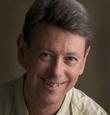Sometimes something happens. Perhaps your sweet old cat takes a turn for the worse, or there’s a money problem, or your son waves goodbye as he gets on a plane to start college on the other side of the country. Sometimes it’s on a larger scale: maybe there’s been an election, and you’re grappling with its consequences (see my last post on this topic: Take Heart).
Or you might be dealing with something ongoing, like a dead-end job (or no job at all), life after divorce, chronic pain, or a teenager who won’t talk to you.
Whatever it is, at first, it’s normal to feel rattled, frozen, or unclear about what to do. After a while, you do what you can to change things for the better. But often, there’s not much you can actually change, and sometimes nothing at all.
Still, there is always one thing you can do, no matter what.
You can always find someone to love.
Besides the benefits for those on the receiving end, as Shelley Taylor at UCLA has shown, “tending-and-befriending” others can lift your own mood while lowering your stress hormones. Also, at a time when you may feel powerless about the wider world, at least locally, here and now, you can make a real difference. Love is never defeated. Heart after heart after heart.
The Practice.
By “love,” I mean a wide range, including compassion, support, friendliness, encouragement, appreciation, and cherishing. It can be expressed in simple or subtle ways, such as a call to a friend, more patience with a partner, saying what you liked about a co-worker’s idea, or seeing the being behind the eyes of a stranger passing on the sidewalk.
And if love is not expressed, it’s still real, and it matters. For example, when things happen at any scale that is or could be awful for others – from your daughter’s friends turning against her to a turn for the worse in a country to the planet overheating and species dying – it’s natural to feel a sense of moral outrage on behalf of other beings. This is a kind of love, even if there is no place to put it. Or you might sense the weariness in the person sitting across from you in the subway and feel some compassion and goodwill. Perhaps you think about a friend with an appreciation or smile to yourself at what a goofball he is.
It’s all love.
It’s been very important to me personally to claim inner freedom to love. I’ve had frustrating struggles trying to get others to love me or to receive my love. But no one can stop us from finding and feeling love inside ourselves.
Love feeds us as it flows out of us. Soothing, calming, centering, and strengthening.
Slow it down. Listen longer. Make room for the heart.
Who else could you love?
Rick Hanson, Ph.D. is a psychologist, Senior Fellow at UC Berkeley’s Greater Good Science Center, and New York Times best-selling author. His six books have been published in 30 languages and include Neurodharma, Resilient, Hardwiring Happiness, Just One Thing, Buddha’s Brain, and Mother Nurture - with over a million copies in English alone. His free newsletters have 250,000 subscribers and his online programs have scholarships available for those with financial needs. He’s lectured at NASA, Google, Oxford, and Harvard and taught in meditation centers worldwide. An expert on positive neuroplasticity, his work has been featured on CBS, NPR, the BBC, and other major media. He began meditating in 1974 and is the founder of the Wellspring Institute for Neuroscience and Contemplative Wisdom. He and his wife live in northern California and have two adult children. He loves wilderness and taking a break from emails.

Post new comment
Please Register or Login to post new comment.